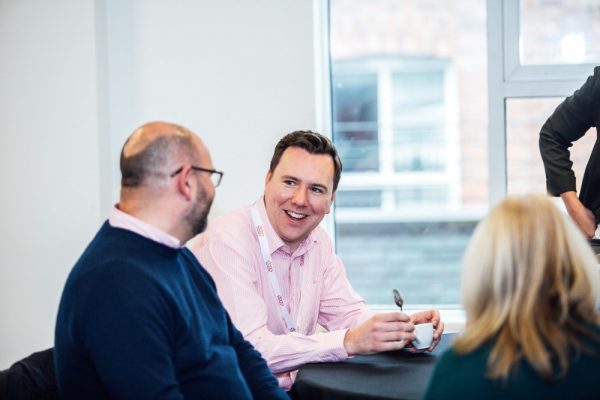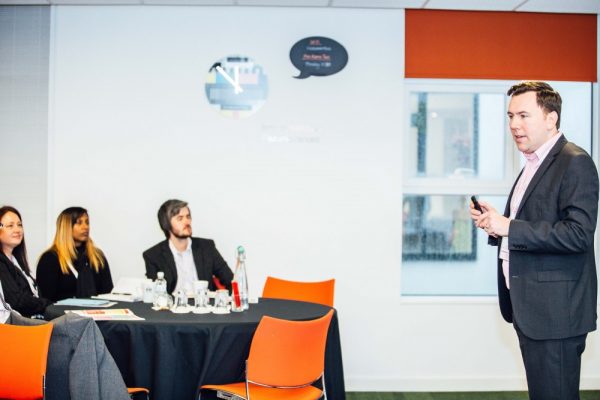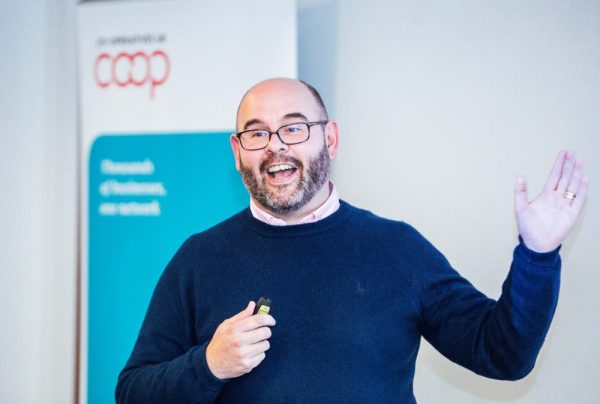Experts in member engagement told delegates at the Practitioners Forum in Manchester that co-ops should listen to members’ views and develop products that keep their needs in mind.
Engaging with membership is crucial to advancing a co-op’s growth – so how should they work with members to create what they value?
Having a say
Senior manager for member engagement at Nationwide Building Society, Sam Grayston, advised delegates to look for an aspect of their co-op that would appeal to their members the most.
Mr Grayston, who worked for the Co-op Group, said: “People care somewhat more passionately about a more collective experience and are much more self-motivated by money.
“Things like food are massively important for people – it inspires them to take some action and engage.

“The relationship between members and a building society is largely financial. How do we find a ‘food’ element to being a member of a building society?”
A former drama teacher, Mr Grayston gave an example of his class wanting a say on the planning of a play – and related that to members wanting a say in their co-op.
He emphasised it was important for members to have dialogues with decision-makers in the co-op and be able to see how they influence affairs.
Mark Robinson-Field, the Co-op Group’s digital membership manager, said co-ops should use technology to connect members and find out what they want from their membership.
Related … Finding your voice: how the Co-op Group is giving members say
His team ran an internal workshop involving video conversations with a small but representative sample of Group members about different types of wine they were asked to sample.
“Members don’t understand what having a say means,” said Mr Robinson-Field, who talked about how to take members’ voice forward. “We need to work with them to create what they value. Don’t say what the co-op wants to do; start with what the members want to do.”
Listening to members’ feedback
Nationwide’s research into how AGMs are organised found that some members expect to read notes and vote in just 15 minutes.
“That’s all they’re going to give you,” said Mr Grayston. “But the papers are at least 20 pages long!
“We need to think about how to provide information to our members that if they want to do it in a couple of minutes, they can, and if they want to read more, they can, too.”

The building society has 14 million members, 8 million of whom are eligible to vote and take part in AGMs.
The Co-op Group’s project identified 48 different things that member voice could be; these were negotiated and explained by members, offering crucial feedback.
The top three priorities identified by Mr Robinson-Field in the research were:
- A way for members to co-create products and services
- A way for members to give feedback on the service they receive (“Rating their experience seemed to be a key area of work.”)
- A way for member ideas to be presented in consideration by democracy and management (“Them telling co-ops what they want co-ops to do.”)
Learning to meet members’ needs
Both speakers identified three key elements of membership:
- Choice – having a say on some aspects of membership
- Belong – to the community, ie by supporting local causes
- Deserve – exclusive offers and deals
Mr Grayston stressed that co-op values make a huge difference, adding: “You get really close to what it stands for and why we do what we do. It’s very encouraging to be part of that.
“Hearing the voice of our members is important and that’s why we’re in the process of looking at how we do it.”
He discussed a members’ panel run by his company, which includes a representative sample of the membership to put forward its views.

“We really believe that it could be a platform we can use for different things, such as our social investment strategy,” said Mr Grayston.
“Part of what we want to do with that strategy is to ask local members about housing and building products, and to decide how better we should support them.
“There was no vehicle to do that but we want to use that panel so that we can have conversations with people who live far way to learn about them.”
Related … Return of the Co-op as Co-operative Group rebrands
Conversations with members proved equally important for the Co-op Group. “It was a unique way of hearing what people are engaging with,” Mr Robinson-Field said of the video interviews. “It was brutal but very fascinating.
“We found that members are very supportive of the Co-op; they’ll tell you the truth but they’ll do it in a way that’s very constructive.
“What do we do when we hear something we didn’t want to know? We just know it. It’s not a bad thing to hear what people are thinking.
“The idea was that every aspect of member voice would be tested by members and they’d be part of decision making.”